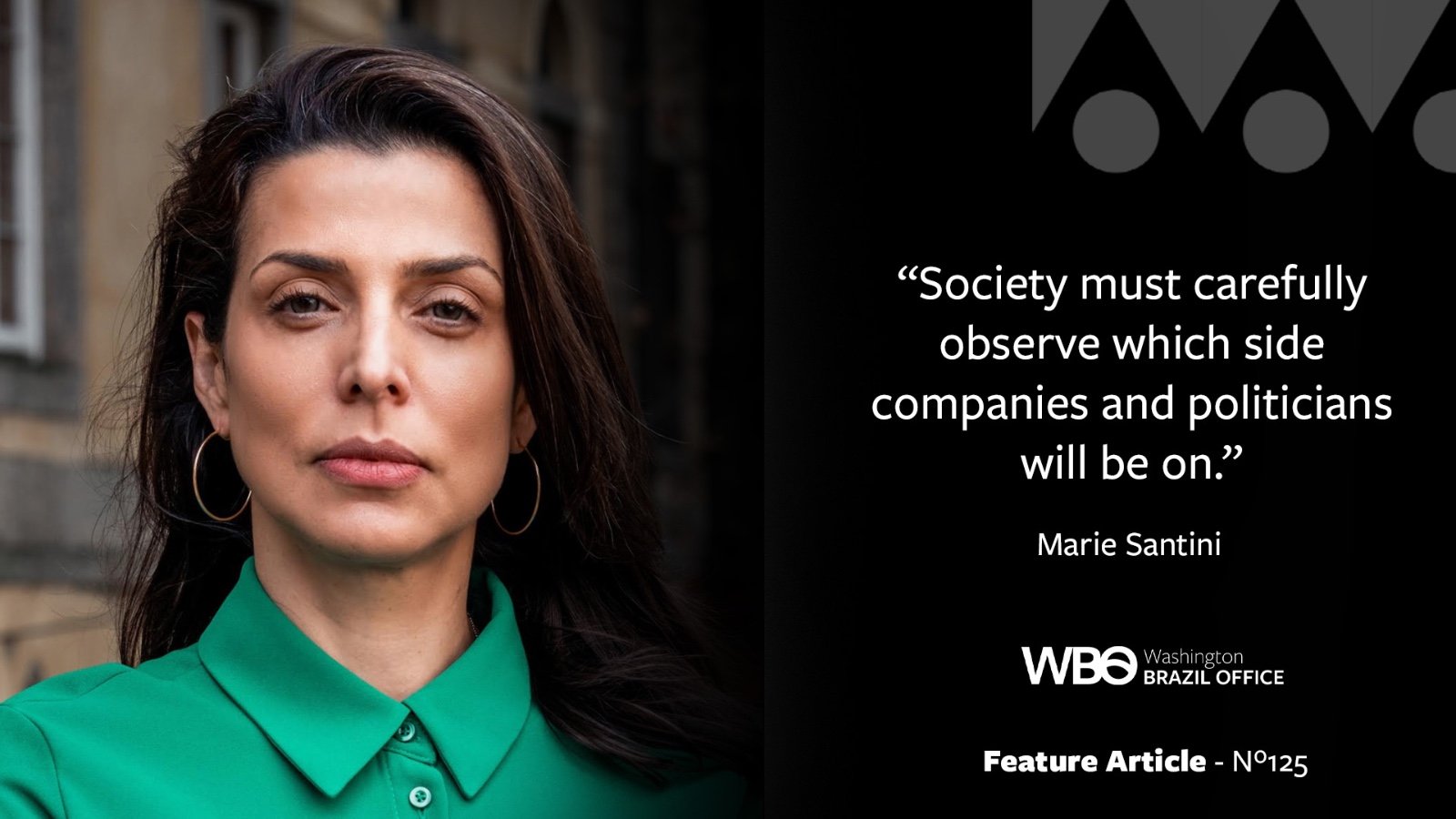Who is Interested in Keeping Research into Online Crimes Silent?
Marie Santini is a professor at the Federal University of Rio de Janeiro (UFRJ) School of Communication and founder and director of Netlab UFRJ. She is a researcher with the National Council for Scientific and Technological Development-CNPq, a researcher at the Vox-Pol European Network, and a member of the International Observatory on Information and Democracy. This article was written for issue 125 of the WBO weekly newsletter on July 12, 2024. To become a subscriber to the newsletter, simply enter your email in the form below.
NetLab UFRJ (Federal University of Rio de Janeiro) is a national reference in the study of disinformation that circulates on the internet and social networks. Having carried out research on the state of digital information in Brazil for thirteen years, the Laboratory seeks to actively participate in the public debate, whether in academic fora, civil society initiatives, official activities, or with its frequent participation in Brazilian and international news.
Recently, the Laboratory, its research, and its researchers suffered a series of attacks. Congressional politicians from the conservative camp presented requests for NetLab to be called to a public hearing and contacted the Ministry of Education to obtain documents on the laboratory's financing – information that is available on our website. On social media, we have been victims of a campaign by politicians, bloggers, and influencers opposed to the research on disinformation, which resulted in thousands of insults, provocations, and threats on our profiles. Some publications suggested that, like the Stanford Internet Observatory, whose activities were closed after a campaign of persecution by U.S. congressional representatives, NetLab should be closed.
The attacks insinuated that NetLab UFRJ was persecuting and criminalizing members of the publicly funded opposition, alluding to projects supported by Senacon of the Ministry of Justice and the Ministry of Women. However, this funding exclusively covers research into digital advertising and content monetization in Brazil. The projects have focused on advertisements promoted on social networks that seek to scam Brazilian consumers, stealing their personal data and/or their money.
Amid the siege of conservative politicians and influencers, an article from the journal Núcleo highlighted the ways in which big tech deals with scientific results when they point to problems that affect their economic interests. Lawyers for Meta, owner of Facebook, Instagram, WhatsApp, and other platforms, accused NetLab UFRJ of bias, calling into question the ethics and quality of the scientific research we produce. The lawsuit, filed by Senacom and based on evidence presented in a NetLab report, holds the company responsible for keeping fraudulent advertisements on the air even after being alerted to their content.
What do these attacks show about the disinformation industry in Brazil? Why is there an interest in censoring research that defends consumer rights?
The attempt to silence research into fraud and scams in online advertising protects criminals who hide behind the lack of regulation in the digital environment. It is necessary to investigate, therefore, the interest of those who defend the permanence of a virtual environment conducive to fraud and scams against Brazilian citizens, even questioning whether they have anything to gain from this situation.
This is not, however, the role of NetLab UFRJ. Our mission is, among other things, to support public debate and analyze the role of new technologies in contemporary strategies for manipulating the media and public opinion, providing empirical evidence to support the development of appropriate legislation.
Meta's defense, in turn, delegitimizes this evidence by declaring that it is biased or not sufficient to regulate its actions. The company knows that any initiative to regulate its activities translates into lost revenue. Each fraudulent ad generates profit for the platforms while offering a business opportunity for fraudsters to reach the “ideal victims.” An unprotected and unregulated online environment generates profits for these companies. The less regulation, the more their business model prospers, and that is why their lawyers try to shield them from scientific questions.
In the case outlined by the journal Núcleo, Meta does not respond to the problems raised by Senacom. Instead, it attacks the legitimacy of the objective evidence, collected by NetLab UFRJ, which supports the case and questions the professional capabilities of the laboratory director, Professor Marie Santini. When Meta or other big tech acts to discredit science, it is allying itself with those who use the platforms to carry out scams, obtain political advantages, or undermine democracy, which is something we have recently seen in our country.
The economic interests of private groups, or the interests of political groups, cannot override consumer safety and the democratic rule of law. The evidence raised by NetLab UFRJ research, carried out with integrity and in accordance with the best scientific practices, puts pressure on platforms and politicians to take a position in the face of the scenario of opacity and deregulation of social networks in Brazil. What is at stake is the ability to curb criminals on the internet and preserve democracy. Society must carefully observe which side companies and politicians will be on.

